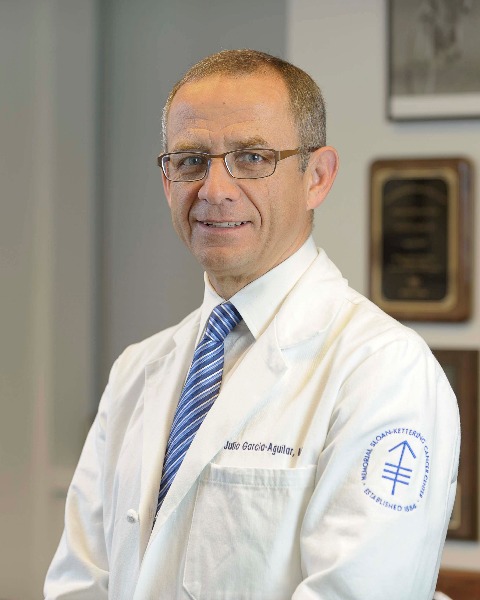Colorectal/GI
non-CME
P20: Microsatellite Instability (MSI): The Transition from Favorable to Unfavorable Outcomes with Lymph Node Metastases

Asama Khan, MD
Postdoctoral Research Fellow
Department of Surgery, Memorial Sloan Kettering Cancer Center
Floral Park , New York, United StatesDisclosure(s): No financial relationships to disclose

Lynn Hakki, MD
Postdoctoral Research Fellow
Memorial Sloan Kettering Cancer Center
New York, New York, United StatesDisclosure information not submitted.

Asama Khan, MD
Postdoctoral Research Fellow
Department of Surgery, Memorial Sloan Kettering Cancer Center
Floral Park , New York, United StatesDisclosure(s): No financial relationships to disclose
- MG
Mithat Gonen, PhD
Chief of the Biostatistics Service
Department of Biostatistics, Memorial Sloan Kettering Cancer Center, United StatesDisclosure information not submitted.
- MW
Maria Widmar, MD, MPH
Assistant Attending Surgeon
Department of Surgery, Memorial Sloan Kettering Cancer Center, United StatesDisclosure information not submitted.

Iris H. Wei, MD
Assistant Attending Surgeon
Memorial Sloan Kettering Cancer Center
New York, New York, United StatesDisclosure information not submitted.
.jpg)
Jesse Joshua Smith, J. Joshua Smith, MD, PhD, FACS
Associate Member, Associate Professor
Memorial Sloan Kettering Cancer Center, Weill Cornell Medical College
New York, New York, United StatesDisclosure information not submitted.
- EP
Emmanouil P. Pappou, MD, PhD
Assistant Attending Surgeon
Department of Surgery, Memorial Sloan Kettering Cancer Center, United StatesDisclosure information not submitted.

Garrett M. Nash, MD, MPH (he/him/his)
Vice Chair, Department of Surgery
Memorial Sloan Kettering Cancer Center
New York, New York, United StatesDisclosure(s): No financial relationships to disclose

Philip B. Paty, MD
Attending Surgeon
Memorial Sloan Kettering Cancer Center
New York, New York, United StatesDisclosure information not submitted.

Julio Garcia-Aguilar, MD, PhD
Chief Attending
Memorial Sloan Kettering Cancer Center
New York, NY, United StatesDisclosure information not submitted.

Martin R. Weiser, MD
Professor and Member
Memorial Sloan Kettering Cancer Center
New York, New York, United StatesDisclosure(s): No financial relationships to disclose
Poster Presenter(s)
Author(s)
First Author(s)
Author(s)
Methods: Patients with non-metastatic colon cancer resected from 2015 through 2021 were identified using a prospective database. Patients with rectal cancer, concurrent malignancy, and neoadjuvant treatments were excluded. MSI was assessed using immunohistochemistry for mismatch repair protein expression or next generation sequencing. Univariate analysis was performed with chi-squared, T-test, or Mann-Whitney test and time to event analysis with Kaplan-Meier method. Multivariable analysis was calculated using a Cox Regression.
Results:
The study population included 1553 patients with 361 (23%) MSI which were associated with older age, female sex, right-sided location, earlier stage, fewer LNM when N1/2, presence of tumor infiltrating lymphocytes, and fewer high-risk features such as tumor deposits, tumor budding, perineural, and lymphovascular invasion. Odds of having a LNM were approximately 50% lower for MSI patients regardless of the T stage (Odds Ratios: 0.544 (0.293-1.008) for T1/2 and 0.522 (0.384-0.710) for T3/4). Predictors of LNM had similar effect size in MSI and MSS colon cancer including age, tumor sidedness, sex, tumor grade, vascular, and perineural invasion. The impact of LNM on recurrence free survival (RFS) was considerably greater in MSI tumors with 4 or more LNM compared to MSS (Figure). With N0 as the comparator, the HR for RFS in N1 and N2 was 2.99 (1.98-4.52) and 4.49 (2.84-7.09) for MSS and 4.86 (1.57-15.08) and 19.75 (7.16-54.45) for MSI.
Conclusions:
MSI colon cancer is 50% less likely to have LNM compared to MSS in each T category. When present, LNM are fewer in number, but the predictors of LNM are similar between MSI and MSS. LNM is associated with reduced RFS especially in MSI tumors with 4 or more (N2) lymph nodes. This study further defines the transition from favorable to unfavorable outcome as MSI colon cancer becomes metastatic and highlights the need to investigate the heterogeneity of immune response in mismatch repair deficient disease.
Learning Objectives:
- Report that the odds of having a lymph node metastasis is approximately 50% lower for MSI patients regardless of the T stage.
- Recognize that the predictors of lymph node metastasis are similar between MSI and MSS colon cancer.
- Identify the transition from favorable to unfavorable outcomes in MSI patients with 4 or more positive lymph nodes.
